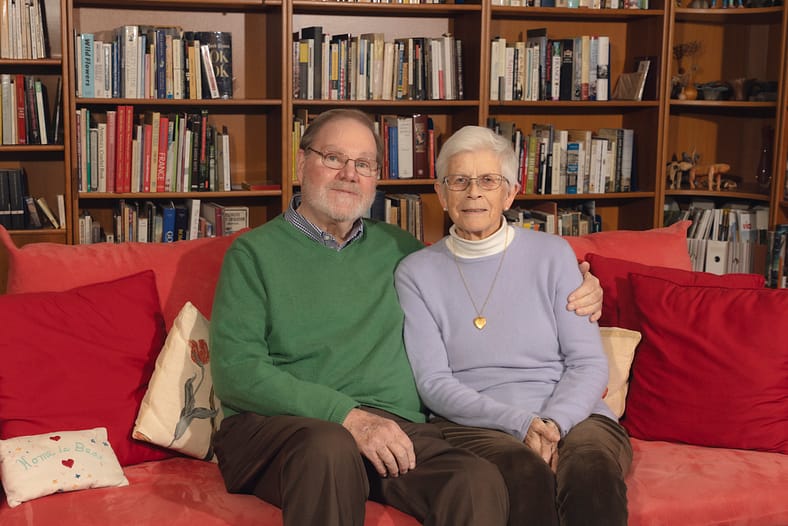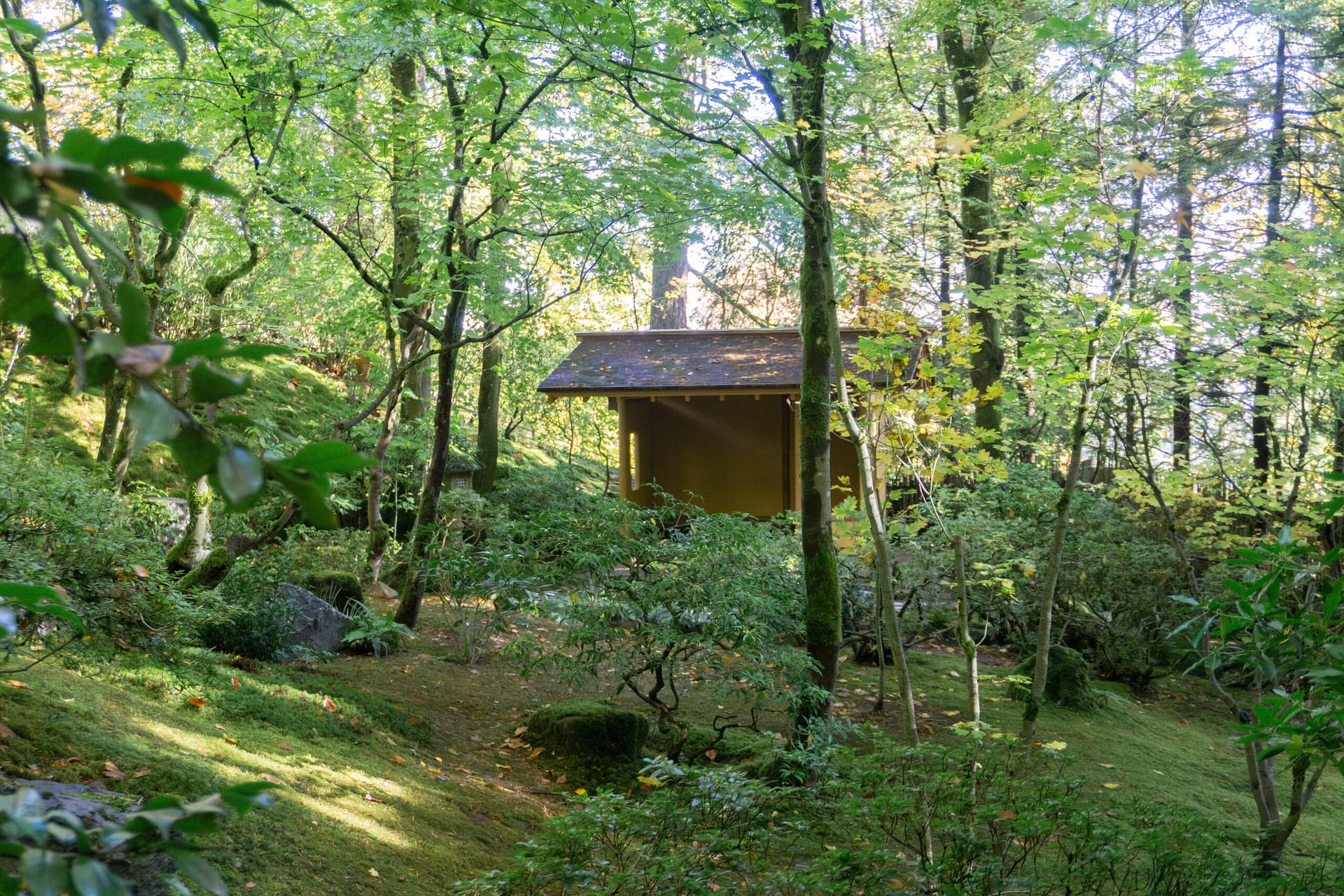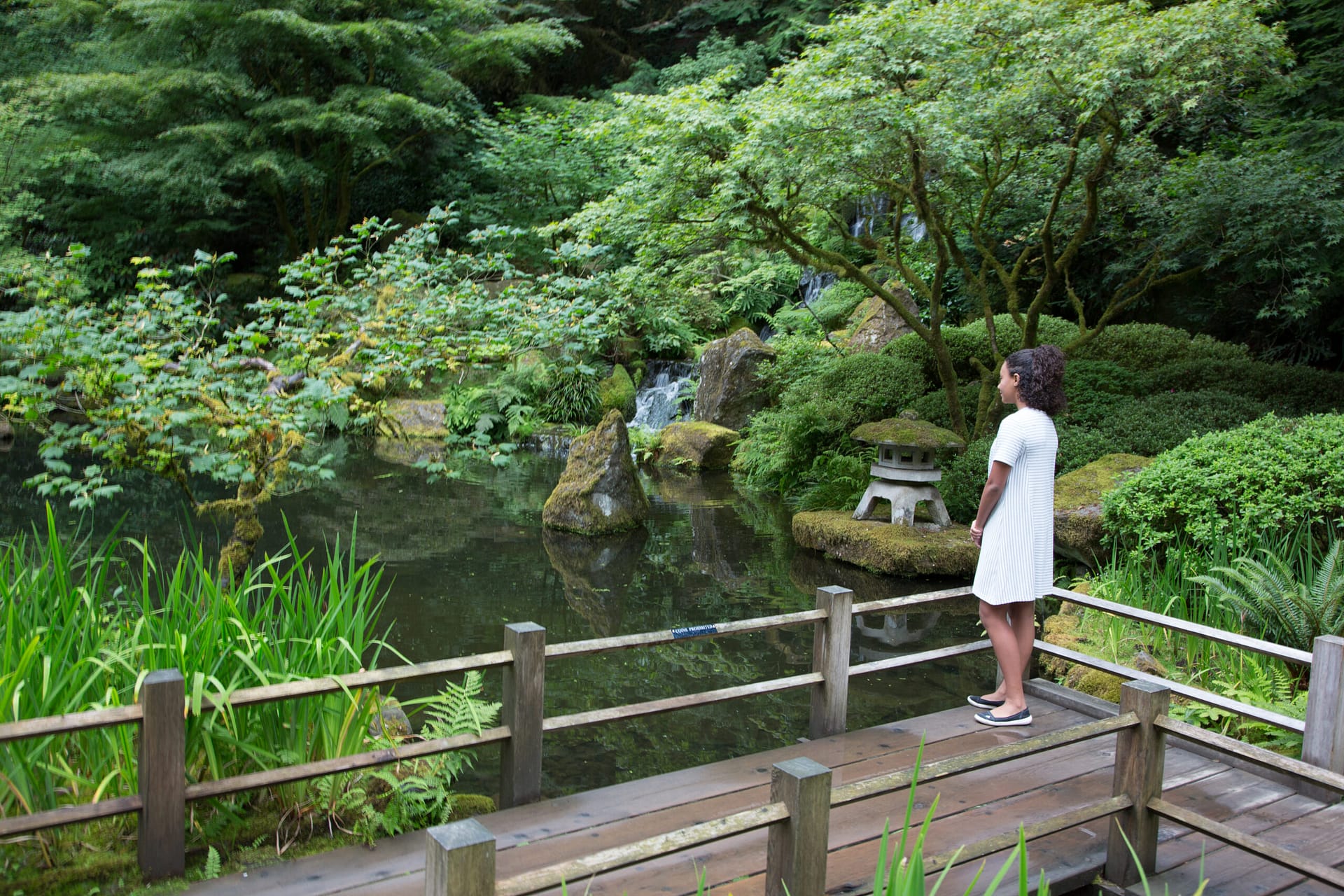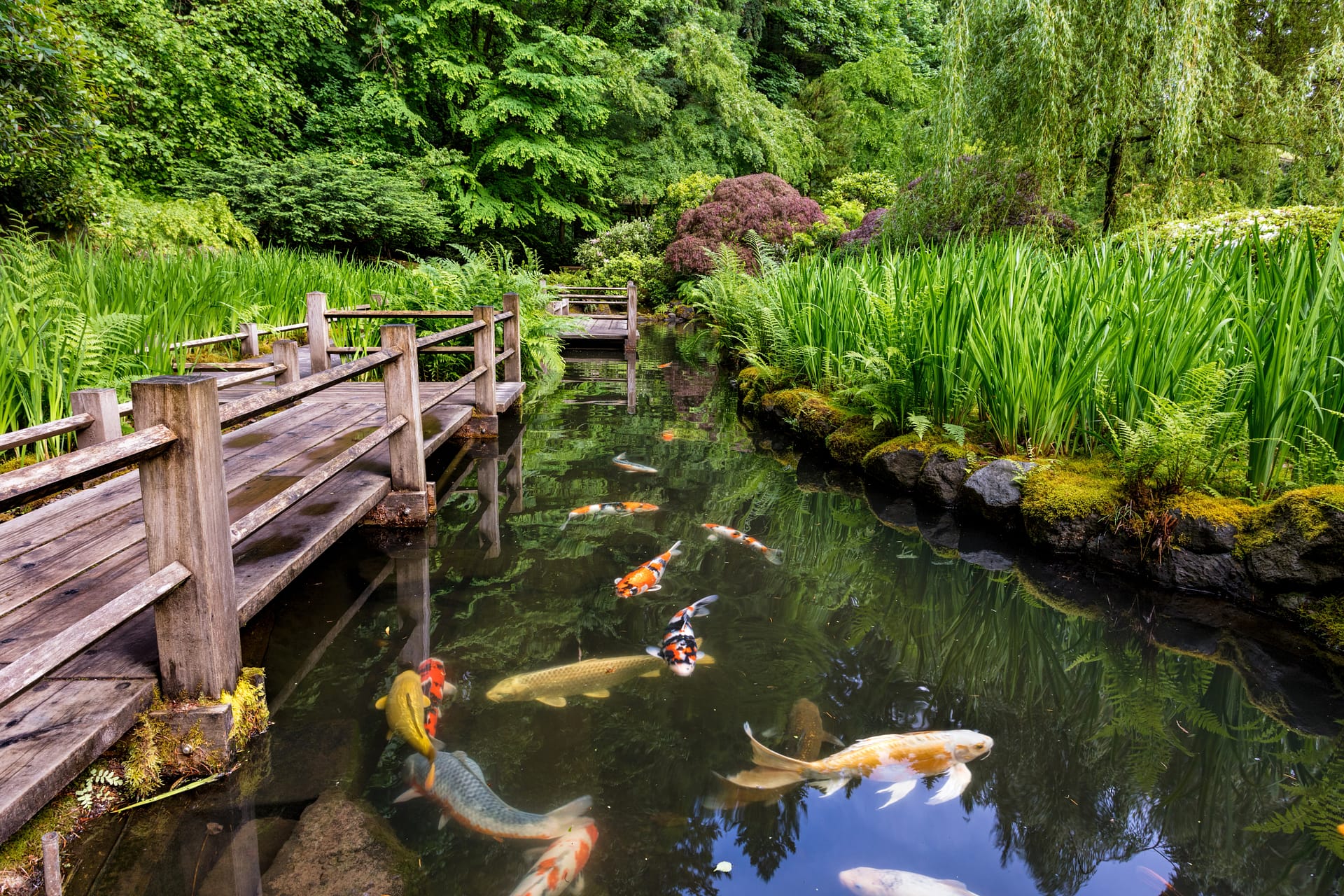
Helping Future Generations Experience the Joy They Get from Portland Japanese Garden
By Will Lerner, Communications Manager for Portland Japanese Garden & Japan Institute
Portland Japanese Garden has created the Phoenix Legacy Society to assist individuals who want to support the organization through their estate. Working alongside our Development Department, those in the Society are guided through a planning process to make sure that the end result aligns with their philanthropic interests. Joining the Phoenix Legacy Society is an incredibly generous and thoughtful way to honor the Garden and help ensure it remains able to pursue its mission of Inspiring Harmony and Peace for generations to come. We recently sat down with two members of the Society, Jacquie Siewert-Schade and W. Curtis Schade, about why they decided to make this meaningful gesture.
Falling In Love with the Garden

Curtis and Jacquie, married since 1977, hail from the Midwest. Both worked in education—Jacquie as a librarian and Curtis as a French language teacher before leaving the classroom to work in a variety of administrative roles. Their careers would take them across the U.S., with stops in Connecticut, Maryland, and Utah before they moved to Sunriver, Oregon in 2000. They eventually settled in the Portland area in 2012.
“I think the first time we were in the Garden, I had already become or was working on becoming a master gardener,” Jacquie recalls. “I had said to Curtis, ‘If we ever live in Portland, I would love to be a docent at this place.’ It just seemed like a place that I would be very comfortable talking about, a welcoming space where I could be of service. When we moved to Portland, I was accepted into the volunteer tour guide training program in 2013 and have been an active guide since.”
“The seasons change and the Garden changes,” Jacquie continues. “The Garden’s never the same from one day to the next. I had an experience last fall when there was a very heavy mist in the air when I came up to do a tour and it felt like the Garden was putting its arms around me. It was so comforting and so tender, and I thought, ‘Wow, this is really why I come here.’”
Some days when Jacquie comes to give tours, Curtis will join her just to enjoy the Garden spaces. “It’s so beautiful and interesting,” Curtis shares. “I think my favorite seasons are winter, spring, and fall. I mean, I like the summer too, but I like the colors. I love the colors in the spring and fall, and find winter wonderful, too, for being able to see the structure of the trees. I look through the photographs on my phone and see that I’ve taken the same pictures of this beautiful place, year after year, for at least the past ten years! It’s just so lovely.“
A Worthwhile Mission

While the pair have great affection for the visual beauty of Portland Japanese Garden, its history as a place of cross-cultural understanding and ability to provide visitors a moment of serenity resonates even more.
“I always begin my tours by talking about the Garden’s mission [Inspiring Harmony and Peace],” Jacquie notes. “I share the initial intent in the 60s to create a Japanese garden as a place of peace. I think by and large the Garden has been successful. And now more than ever, this kind of space is incredibly necessary for people. There is something so quiet and embracing about a Japanese garden. I know many people who come to refresh themselves, to sit quietly, to just be present in the moment. These kind of spaces are becoming fewer and fewer at a time where they’re becoming more and more important.”
Why They Joined the Phoenix Legacy Society

“I think that the mission of Portland Japanese Garden to be a source of education and inspiration is a terribly important thing,” notes Curtis. “I would like the joy and rewards of visiting the Garden to continue on in the future for people who haven’t yet been there and for the people who are little children or not yet born, to have a chance to do that. And I think that then wraps around to one of the fundamental questions here, which has to do with the Phoenix Legacy Society. We want to help make it possible for all of those other people to see and experience that kind of joy and wonder that we’ve experienced.”
“Your money goes where your heart is, to your children and family first, and then to organizations that most reflect your core values,” Curtis continues. “For us that means organizations that feed and house people, and organizations, like the Garden, that feed the soul and offer beauty, peace, knowledge, and a different vision of the world than the one we see in our everyday lives. And people don’t have to give really a lot of money to join the Society. I think people need to know that, that no gift is too small.”
“Portland Japanese Garden is the crown jewel of Portland, a place of amazing beauty, cultural insight, and peace, and those of us lucky enough to know it need to support it,” he concludes. “One way to do that is through annual giving or support for special projects. Another is by including the Garden in your estate planning. What better thing to do than to continue to support this place we love after our death so that future generations will be able to experience the same joy we have.”
Jacquie notes that the future efforts of the organization also played a factor in their decision to include the Garden in their estate planning.
“I think it is extremely important that the Japan Institute continues to grow and continues to bring together artists from all disciplines,” Jacquie shares. “It’s a wonderful approach to understanding a different culture by seeing it through the eyes of a potter, a designer, and so on. I remember many years ago the Garden had a show of wicker work that was the most amazing thing I’d ever seen—it was an insight into how people see the world. I think the Japan Institute is the place for that, including to train new gardeners.”
“The Garden needs people who love it as much as we do to stand with it and keep it strong,” Jacquie concludes, turning back to the Phoenix Legacy Society. “I was thinking about the legend of the phoenix. The phoenix lives a long life, is consumed by fire, and rises from the ashes to live again. What could be more comforting and lovely than to keep that image in mind when people see this Garden and say. ‘I’m not going to be here forever, but I can make sure that it’s going to be here for other people.’”

For more information about Phoenix Legacy Society, contact our Director of Development, Claire Eisenfeld, at ceisenfeld@japanesegarden.org or (503) 542-0281.